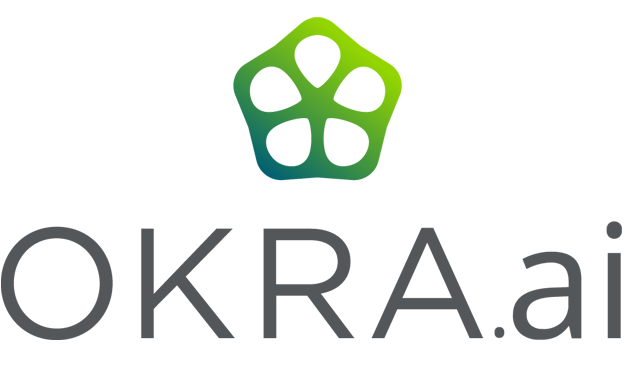Winner profile

“We’ve been playing music without sheets and now we’re writing it,” says Loubna Bouarfa, founder and CEO of OKRA.ai, explaining how the company’s artificial intelligence (AI) technology is being used to support pharmaceutical companies to bring the right drug to the right patient at speed. “We help uncover insights that are business critical and directly impact physicians and patients,” says Bouarfa, “and so far we’re only just scratching the surface.”
Founded in 2015, Cambridge-based OKRA.ai creates “intelligent AI brains”, for the life sciences and pharmaceutical industry. These systems extract, connect and enrich data to power different software products, each tailored to the different stages of the drug creation and commercialisation lifecycle. Its products include systems to assist with drug price prediction, medical affairs strategy, sentiment prediction, and sales and marketing optimisation.
Bouarfa, who is Dutch-Morrocan, started the company over seven years ago after working as a research data scientist at behavioural insights and fraud prevention company Featurespace. She had previously completed a PhD at the Netherlands’ Delft University of Technology, before taking a postdoctoral position at Imperial College London.
In 2018, motivated by her passion to deliver ethical and trustworthy AI, Bouarfa started a two-year stint as a high-level expert on artificial intelligence for the European Commission. “When advising the European Commission on AI, we agreed that AI systems are those that have a high degree of autonomy,” says Bouarfa. Her contributions to the group helped shape the European guidelines that were published in 2019.
Bouarfa says that the COVID-19 pandemic dramatically impacted the way that pharmaceutical companies approach drug development and commercialisation: “2020 was an inflection point for artificial intelligence, similar to the year 1990 was for the internet.” For OKRA.ai, the pandemic shifted commercial conversations from “what are the benefits?” to swift adoption and implementation. “COVID-19 has shown drug companies that you can run clinical trials in 10 months instead of 10 years,” says Bouarfa. “From an adoption perspective, it has been a catalyst.”
This year has been a busy year for the company. In January, OKRA.ai announced the extension of its partnership with US multinational pharmaceutical company Bristol Myers Squibb to support its commercial teams with insight and automation. OKRA.ai has also deployed its artificial intelligence models in a new development environment and studied the feasibility of expanding its pricing products into new markets including the US and Japan. OKRA.ai also achieved a 50:50 gender split across the company (which has a headcount of over 30) including within the engineering team, a rare feature for a technology company. “It’s worth it even if it means interviewing 200 people for one role,” says Bouarfa. She explains how the company is keen to create an environment where everyone can work together to create innovative solutions: “We want to safeguard our agile culture - that’s our DNA and the key reason why we were able to innovate in a space where others failed.” Bouarfa uses a metaphor to explain the need to balance the company’s creative and commercial goals: the park and the city. She says that the park is where the creativity happens and the city is where the business gets done; a company needs both.
When asked about leaders or entrepreneurs that inspire her, Bouarfa shows no hesitation: “Dame Stephanie Shirley. She started her software business from her dining table in the 60s with an all-women programming team.” Having benefited personally from the example of Shirley, Bouarfa has some advice for the next generation of women leaders: “It’s important for women to be part of the new revolution of AI and technology. It’s also important to have women equally involved in creating the new systems that will make future decisions. It’s important for our world. For all this to happen, it is absolutely necessary to have an inclusive and diverse culture. It is the core of innovation work itself. If the tech revolution yields positive results for women, it will be good for humankind, and that would be a true revolution, finally achieving justice for half the people of this planet.”